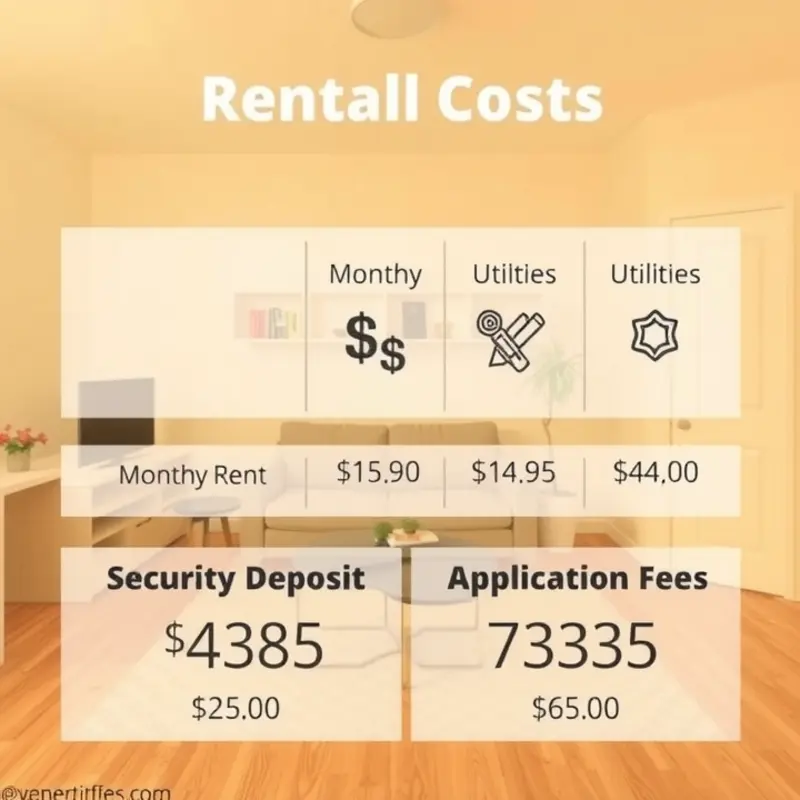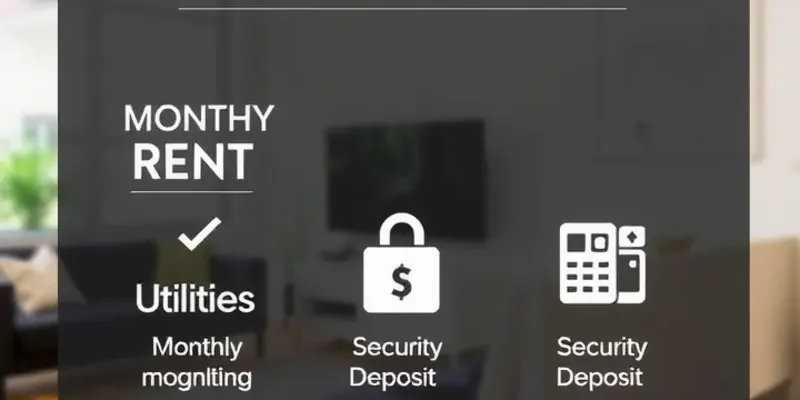Renting your first place is an exciting milestone, whether you’re a young professional starting a career, a student moving into your first apartment, or a family looking for the right home. Navigating this new responsibility requires a solid financial understanding. Knowing what to expect in terms of costs, budgeting for unexpected expenses, and understanding lease agreements will set you up for success. This checklist will cover essential financial considerations before you sign a lease, ensuring you make informed decisions that align with your lifestyle and financial goals. Here, we’ll break down crucial steps and provide practical tips to alleviate the stress often associated with finding and securing the right rental. Let’s dive into the nitty-gritty of your rental journey!
Understanding Rental Costs

Assessing rental costs thoroughly is essential to avoid financial pitfalls. Knowing what expenses to anticipate helps manage your expectations and plan effectively. Begin with understanding the base rent, which is your primary recurring cost. When scoping out potential rentals, categorize these costs as this will paint a clearer picture of your overall budget.
Next, factor in utility costs. Depending on your agreement, these may include electricity, water, gas, internet, or cable services. Some leases include specific utilities, while others require you to set them up independently. Engage with current tenants if possible, to gain a better estimation of these costs.
Deposits are another significant upfront financial obligation. Expect to pay a security deposit, often equivalent to one month’s rent. This is refundable, provided you meet the lease’s terms and leave the property in good condition. Additionally, pet owners should plan for pet deposits or fees, which vary depending on the pet policy.
Additional fees may surface, such as administrative fees or move-in fees. These are standard practices in many rental markets. Even though they may seem minor compared to rent, they can accumulate, impacting your budget significantly.
Insurance is a critical component of rental costs often overlooked. Renter’s insurance might be mandated by your landlord but even when optional, it’s sensible to procure it. It provides coverage in case of unfortunate events like theft or damage, offering peace of mind.
Understanding all these elements allows for a comprehensive total cost analysis. Bear in mind expenses like parking or storage if they are separate from base rent. Assess if you need luxury amenities and how they influence your financial planning. For further insights into budgeting and financial preparedness when renting, consider exploring the financial planning for renters guide.
Once you have calculated these costs, scrutinize how they align with your budget. Use a budgeting tool to track these allocations. Prioritize which costs are flexible and which are fixed, allowing you to adjust spending in other areas of your life. Clarity on these details ensures you won’t face unwelcome surprises, enabling a smooth and financially stable renting experience.
Crafting a Realistic Rental Budget

Determining a realistic rental budget is crucial to ensure financial stability and comfort in your new home. Start by assessing your monthly income. Typically, it is recommended that your rent should not exceed 30% of your income. This guideline acts as a buffer to handle other living expenses and savings goals.
Begin crafting your budget by listing all income sources. Include your salary, any supplementary income, or perhaps a side hustle. Next, jot down mandatory expenses. Consider utilities, groceries, transportation costs, and existing debts. If you repay student loans or credit card debt, these are significant expenses that influence your rental budget.
Once you draw up an exhaustive list of all necessary expenses, subtract them from your total monthly income. The remainder gives you a clearer view of your discretionary income. This is crucial as it determines your capacity to handle rent beyond basic living expenses.
Beyond financial obligations, factor in lifestyle costs. These include entertainment, dining out, personal care, and occasional splurges. Paying attention to these areas prevents overspending and helps maintain balance without sacrificing personal enjoyment. If you’re a fitness enthusiast regularly paying for gym memberships, or a frequent traveler setting aside funds for trips, incorporate these elements into your calculations.
Savings should also hold a vital place in your budget. Consider earmarking at least 10% of your monthly income for savings apart from the rent portion. This could be for emergency funds or long-term goals like buying a home. It’s essential to build a cushion to cover unexpected expenses, offering peace of mind and resilience against financial strain.
Tools such as spreadsheets or budgeting apps can help visualize and track your financial commitments. With these tools, you can adjust values as needed and stay aligned with your financial goals. They offer the flexibility to simulate scenarios, preparing you for any surprises in living expenses.
While crafting your budget, remain transparent about potential future changes. Perhaps you expect a salary raise, or conversely, foresee increased costs in certain areas. Continual assessment and adjustment bode well in the long run, ensuring your budget remains feasible.
Additionally, maintaining a good credit score can streamline the renting process, often impacting your rental negotiations and potential fees. For guidance on enhancing your renter credit, you might find useful tips in various financial planning resources, like Renter Credit Improvement Tips.
Building a rental budget requires diligence and honesty about financial habits. Balancing desire and discipline ensures you find a dwelling that meets your needs without igniting financial struggle. As you embark on this journey, remember that living comfortably within your means lays the foundation for a positive rental experience.
Final words
Successfully renting your new home starts with understanding the financial implications involved. By assessing the complete range of costs and crafting a well-thought-out budget, you can approach the leasing process with confidence. This proactive approach not only safeguards your finances but also secures your peace of mind in a new living situation. Rental decisions should not be made lightly; taking the time to comprehend all aspects and planning accordingly will make renting a smooth and enjoyable experience.









